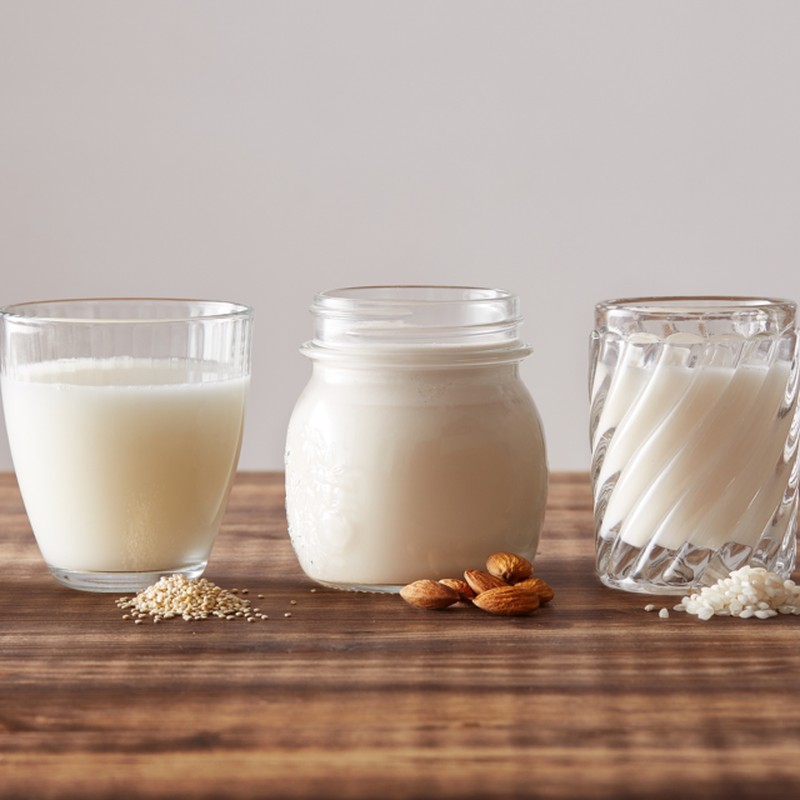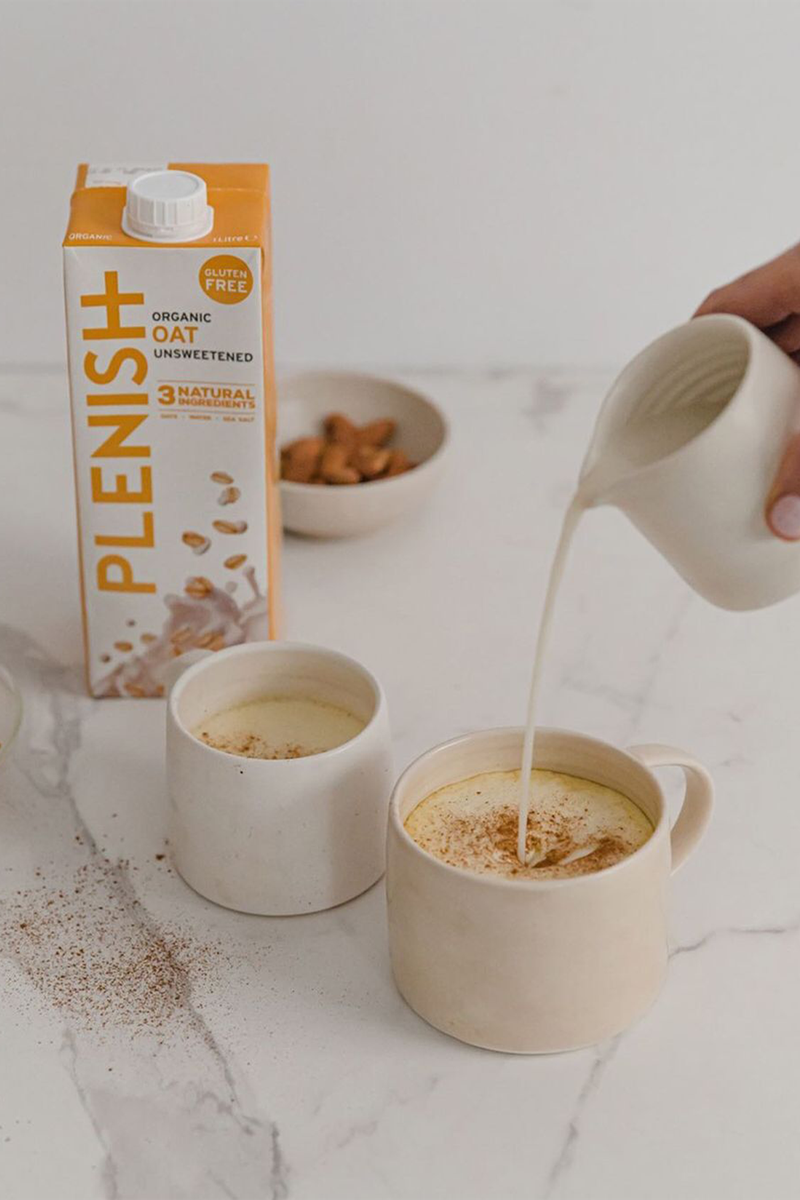A Nutritional Guide To Plant-Based Milk
DO…
Read The Label: “Plant-based milk alternatives are typically made by soaking the legume, nut, grain or other main ingredient and then pressing and straining the liquid, or ‘milk’. Made with typically healthy ingredients like oats and nuts, it can be easy to think all milk alternatives are healthy, but that’s not always the case. The main problem with plant milks is that they tend to contain seed oils – these are inflammatory to the body and can cause endless health problems. Look for brands that only contain three ingredients – Plenish is a great example – and avoid brands that have a long ingredients list. In an ideal world, the ingredients list should just list water, a pinch of salt and whatever the main ingredient is.” – Clementine Campbell, naturopathic nutritional therapist
Avoid E-Numbers: "There has never been more choice when it comes to plant milks, but look to brands like Rude Health and Plenish. Be wary of brands including Almond Breeze, Sproud, Dug and Califa, many of which use unnecessary nasties in their milks. Look for brands that use minimal ingredients and don’t include sugars, artificial sweeteners, refined oils, gums, emulsifiers or thickeners. Artificial sweeteners have been shown to negatively impact the gut microbiome.” – Marilia Chamon, gut health expert & founder of Gutfulness
Understand Your Priorities: “Each plant-based milk has its own nutritional strengths and weaknesses. Milks like soy, hemp and pea milk are rich in protein and can be a great source of nutrients for those who don’t consume dairy. Other plant milks, such as almond and coconut, are lower in protein but are a good source of healthy fats. Think about what you want to get out of your plant milk and choose accordingly. If your priority is protein, choose soy milk; if you want a creamy milk for a latte, choose oat milk; and for a low-carb option, choose pistachio milk. Although it’s trickier to find, pistachio milk is simple to make at home, and one to try if you’re following a ketogenic diet.” - Clementine
Look Beyond Oat Milk: “Oat milk is a great source of prebiotic fibre and beta glucans, which have been shown to protect the heart and fuel the activity of the good bacteria in our guts. However, oat milk can spike blood sugar and may not be the best choice for everyone. When consumed in moderation as part of a balanced diet, it’s fine to enjoy oat milk, but don’t get into the habit of drinking it daily. Similar to rice milk, plant-based milks where the core ingredient is a starchy carbohydrate may spike blood sugar levels. Instead, opt for higher protein choices like soy milk.” – Dr Caitlin Hall, chief dietitian at Myota
Think About The Planet: “A glass of dairy milk produces almost three times more greenhouse gases than any plant-based milk. However, that doesn’t mean plant-based options are always great for the environment either. Almond and rice milk both have poor green credentials on account of the vast quantities of water and land needed to grow these ingredients. At the other end of the scale are hemp and hazelnut milk, both of which place fewer demands on the environment to produce, making them greener options.” – Caitlin
Try Something Different: “One lesser-known plant milk that’s growing in popularity is tiger nut milk. Tiger nut is made from small tubers grown in the Eastern hemisphere – they’ve been cultivated by humans for centuries. Tiger nuts are a good source of resistant starch, which means it may help support gut microbiome health. Tiger nut milk also contains higher levels of iron, potassium, calcium and healthy fats than other plant milks, making it a good, nutrient-dense option.” – Caitlin
DON'T...
Feel Like You Have To Ditch Cow’s Milk: “If you can tolerate dairy milk and enjoy the taste, then there’s no reason to swap it for a dairy-free alternative. Despite all the hype of plant-based milk, it’s important to remember that cow’s milk is a fantastic source of nutrients, especially protein, calcium and vitamin B12. If you are dairy intolerant or prefer a dairy-free milk, make sure you’re looking for one that has been fortified with calcium and vitamins B12 and D, all of which are important for healthy bones and to ensure optimal nutrient balance in your bloodstream.” – Harriet Lidgard, nutritionist
Be Lured By Barista Versions: “Barista-type milk alternatives may seem like a smart pairing for your morning cup of coffee, but these tend to be higher in sugar to make them foam like cow’s milk. If you love a frothy oat milk latte, swap it for a clean soy milk with minimal ingredients, or instead of a latte order a long black with a side of soy milk. In terms of flavour and texture, soy milk is the most similar to cow’s milk.” – Harriet
Overlook Hemp Milk: “Hemp milk may not get much air-time, but it’s a great source of protein and beneficial omega fats. It’s also eco-friendly as nearly every part of the hemp plant can be used for something, and nothing goes to waste.” – Paola Langella, nutrition health coach
Worry About Soy Milk: “Soy sometimes gets a bad reputation as people are concerned about the effect it has on hormones. However, there is no concrete evidence to suggest that moderate amounts of soy will be problematic. Protein-wise, it’s on a par with dairy but look out for fortified versions for added benefits.” – Harriet
Rely On Coconut Milk: “Coconut milk is a good source of healthy fats but it’s not the best for the environment. Coconuts are only grown in tropical climates and the demand for coconuts and coconut-based products, including coconut milk, is causing significant deforestation and is associated with very poor working conditions for those working in the palm plantations – not to mention the emissions associated with transporting it across the world. For a greener conscience, try potato milk, one of the newer alternative milks on the market, which has a very low carbon footprint. However, it isn’t the most nutritious option.” – Harriet
For more information visit TheCotswoldNutritionist.com, ShapesStudio.co, MyotaHealth.com, HarrietWell.com & GutfulnessNutrition.com
SHOP THE EDIT
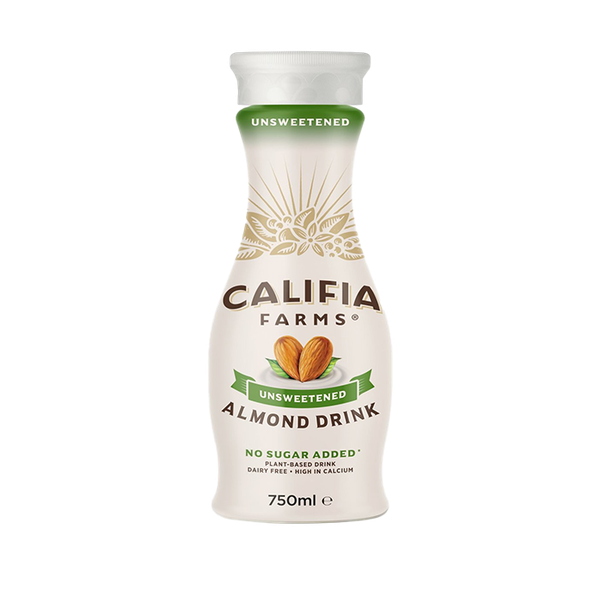
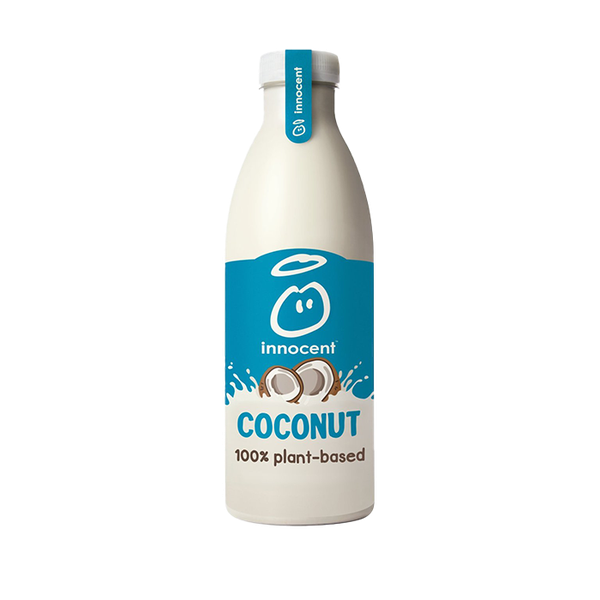
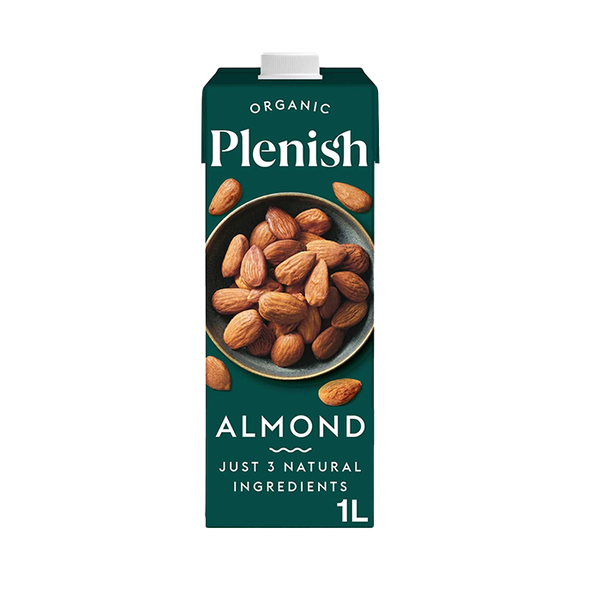
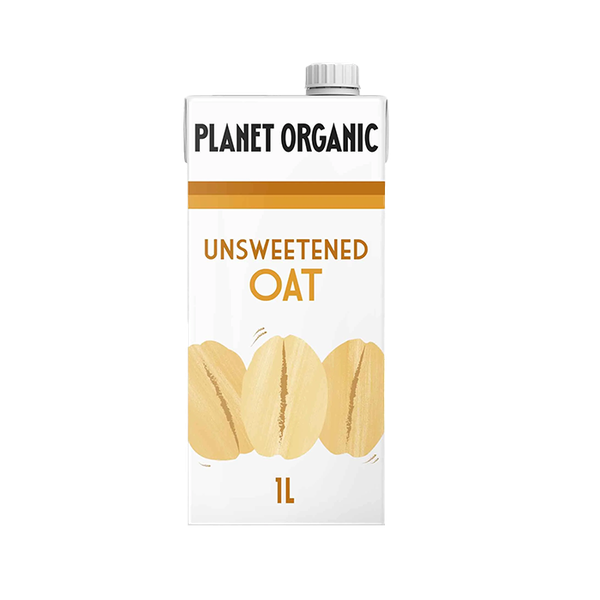
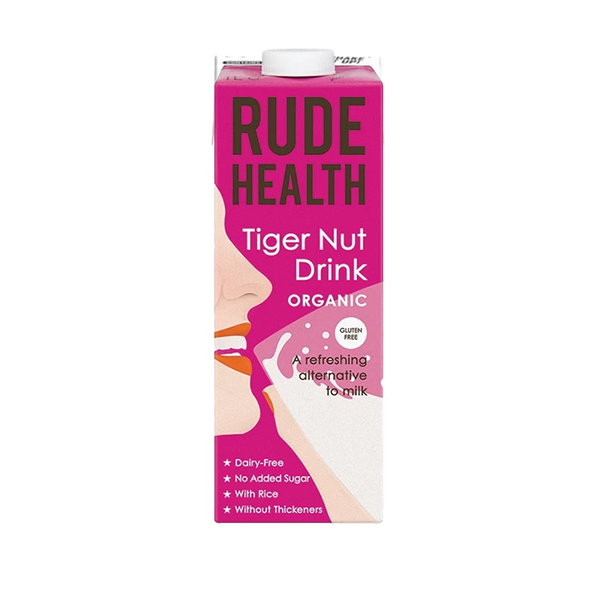
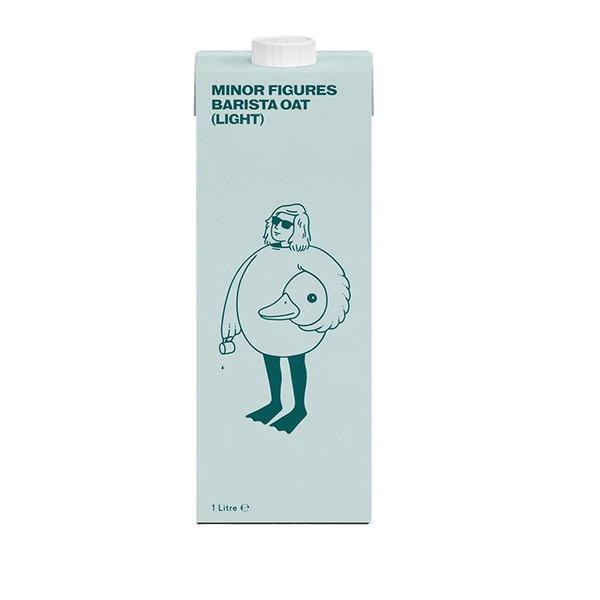
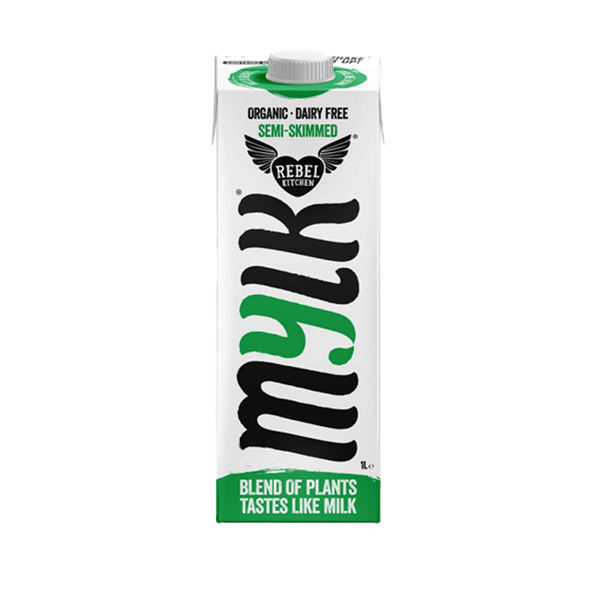
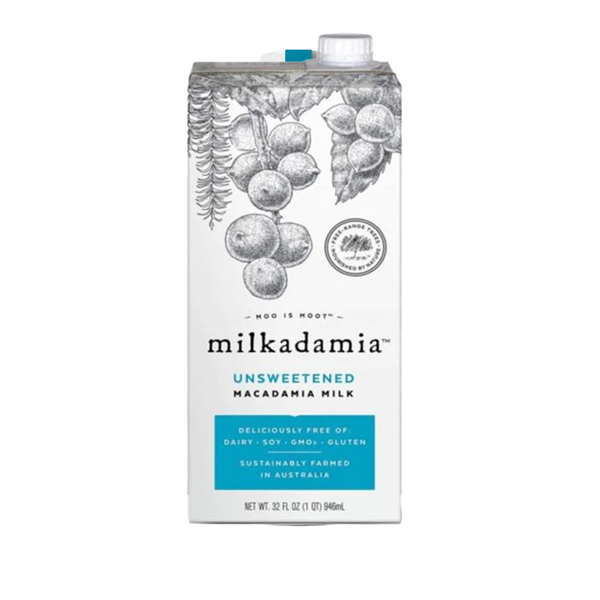
DISCLAIMER: Features published by SheerLuxe are not intended to treat, diagnose, cure or prevent any disease. Always seek the advice of your GP or another qualified healthcare provider for any questions you have regarding a medical condition, and before undertaking any diet, exercise or other health-related programme.
DISCLAIMER: We endeavour to always credit the correct original source of every image we use. If you think a credit may be incorrect, please contact us at info@sheerluxe.com.
